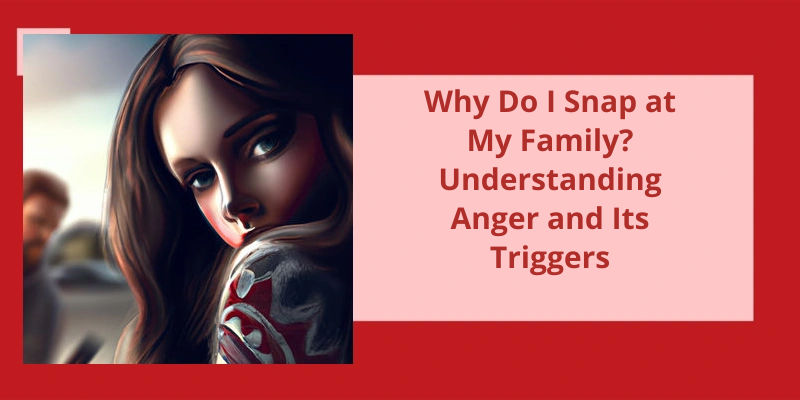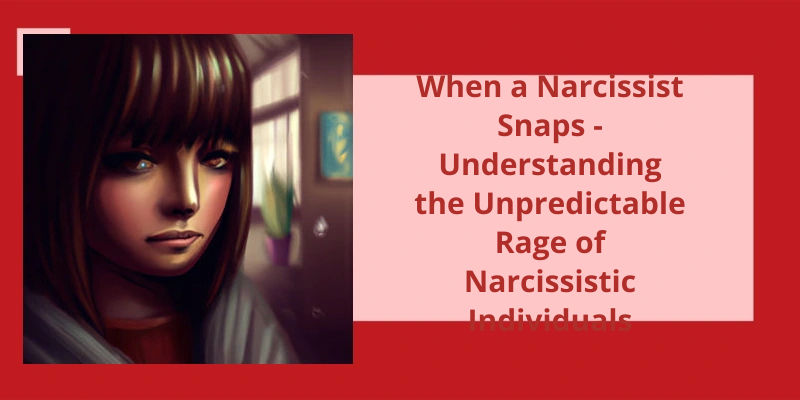Understanding the desire for love is a fundamental aspect of human existence, deeply intertwined within the intricate layers of our emotions, thoughts, and aspirations. The phrase "I wanted to be loved" encompasses a profound yearning for connection, acceptance, and affection that transcends the boundaries of language, culture, and time. It represents a universal longing that resonates within each of us, reflecting our innate need to feel valued, cherished, and understood. To comprehend the essence of this expression, one must explore the complexities of human nature, the impact of relationships, and the significance of love in shaping our perceptions of self and the world around us. This exploration delves into the depths of vulnerability, resilience, and the power of human connection, allowing us to unravel the multifaceted layers of what it truly means to desire love and to be loved.
Why Do People Want to Be Loved?
Love is a fundamental human need that drives individuals to seek connection and belonging. We’re social creatures, longing for companionship and support. By being loved, we feel a sense of acceptance and validation that reinforces our self-worth. It gives us reassurance that we aren’t alone in our journey through life and provides a source of emotional stability.
Moreover, love allows us to experience the joy of giving and receiving. It’s a mutual exchange of emotions, support, and compassion. By loving and being loved, we create a harmonious cycle of positive energy that nourishes our relationships and our own well-being. Love teaches us empathy, understanding, and forgiveness, fostering a deep sense of connection and unity that transcends individual boundaries. It’s through love that we find profound happiness and fulfillment.
The Biological and Evolutionary Basis of Our Need for Love
The desire for love is deeply rooted in our biology and has an evolutionary basis. Throughout our evolution, forming social connections and maintaining close relationships has provided significant survival and reproductive advantages. Love, in it’s various forms, including romantic, familial, and platonic, satisfies our emotional and physical needs, enhancing our overall well-being.
From a biological perspective, love triggers the release of oxytocin, commonly known as the “love hormone,” which promotes feelings of bonding and trust. This hormone plays a crucial role in strengthening the emotional connection between individuals and fosters nurturing and protective behaviors.
Evolutionarily, our need for love can be attributed to the advantages it offers for survival and reproduction. Forming close bonds with others increases our chances of receiving support, protection, and resources, which are fundamental for survival. Additionally, love and attachment facilitate successful parenting, ensuring the survival and well-being of offspring.
Furthermore, love acts as a powerful motivator, driving individuals to seek and maintain relationships. The pursuit of love and companionship is a universal human experience, as it brings joy, fulfillment, and a sense of purpose to our lives.
Ultimately, understanding the biological and evolutionary basis of our need for love can shed light on why it holds such a significant role in our lives and why the desire for love is a fundamental aspect of being human.
It’s a beautiful and fulfilling experience to both love and be loved in return. Love encompasses more than just a feeling; it’s a deep connection that binds two individuals together in an unbreakable bond. To be loved means to be fully accepted, flaws and all, by someone without any conditions or expectations. It’s a rare and precious gift that brings immense joy and fulfillment to one’s life.
What Does It Mean for You to Love and to Be Loved?
It means having someone see past your walls and armor, and embracing your vulnerability. To be loved is to have a sense of belonging and security, knowing that you’re valued and cherished. It’s about having someone who supports you in your dreams and goals, and who sticks with you through thick and thin. Love brings warmth and comfort, bringing a sense of fulfillment and contentment. It means feeling appreciated and understood, even when you struggle to express yourself.
To love someone, on the other hand, is to give yourself wholeheartedly to another person. It’s to care deeply for their happiness and well-being, and to prioritize their needs above your own. Love requires sacrifice, compromise, and understanding. It means being there for the person, offering a shoulder to cry on, and a listening ear. It means embracing their flaws and imperfections, and loving them in spite of it all. Love is a selfless act, a commitment to another persons happiness and growth. To love and be loved is to experience the true essence of being human, to connect with another soul on a profound level.
The Power of Self-Love and How It Affects Our Ability to Love and Be Loved by Others.
Self-love is the foundation on which our ability to love and be loved by others is built. It’s the deep appreciation and acceptance of ourselves, including our flaws and imperfections. When we embrace self-love, we become more secure and confident, which allows us to open up and connect with others on a deeper level.
When we don’t love ourselves, we may seek validation and love from others, desperately trying to fill a void within us. This can lead to unfulfilling relationships and a constant need for external validation. On the other hand, when we cultivate self-love, we feel whole and complete within ourselves. This enables us to enter relationships from a place of abundance and give and receive love authentically.
Understanding our desire for love is crucial in this journey. We all long to be loved and cherished, as it’s a fundamental human need. However, true fulfillment comes from first loving ourselves and recognizing that we’re worthy of love. When we prioritize self-love and care, we set the stage for healthy relationships and attract people who value and respect us.
In summary, “I wanted to be loved” reflects the yearning for love we all have, but it’s important to remember that true fulfillment begins with self-love. By cultivating a strong sense of self-worth, we create the possibility for genuine connections and loving relationships in our lives.
Furthermore, these individuals may have grown up feeling a deep sense of longing and yearning for the love and validation they never received. As a result, their desire for love becomes a driving force in their lives, as they seek to fill the void and experience the emotional connection they’ve always yearned for. Their unmet childhood needs continue to shape their adult relationships, creating a constant longing for love and intimacy. Understanding the origins of this intense desire can help individuals navigate their relationships and work towards healing and satisfying their emotional needs.
Why Do I Desire Love So Much?
Understanding love and our desire for it can often be traced back to our childhood experiences. Many people who experience intense love cravings have a history of lacking appropriate affection during this crucial developmental period. This could be the result of growing up with emotionally unavailable, inconsistent, or neglectful parents or caregivers who were unable to provide the necessary love and support.
The inability to form secure attachments during childhood can have a profound impact on an individuals later relationships and their longing for love. Feeling neglected or experiencing inconsistent love can create deep-rooted insecurities and a fear of abandonment. In turn, this can drive a strong desire for love and affection, as individuals seek to fill the void that was left unattended during their formative years.
If our early encounters with love were marred by rejection or inconsistency, we may develop a belief that love is scarce or unattainable. This can result in a constant search for love and validation, as we strive to prove our worthiness and fill the void left by our early experiences.
Understanding the origins of this desire can help us navigate our relationships and strive for healing and fulfillment in our pursuit of love.
The Impact of Attachment Styles on Love Cravings
Attachment styles play a significant role in generating and influencing love cravings. Developed in early childhood, attachment styles are the unconscious patterns that individuals develop in forming and maintaining relationships. The three main attachment styles are secure, avoidant, and anxious.
Individuals with a secure attachment style are generally comfortable with intimacy and feel confident in the trust and support of their partners. They crave and seek love in a healthy and balanced way, valuing emotional connection and open communication.
On the other hand, individuals with an avoidant attachment style may struggle with intimacy and have a fear of engulfment. They often feel uncomfortable with emotional closeness and may suppress their love cravings as a defense mechanism to protect themselves from potential hurt or vulnerability.
Those with an anxious attachment style typically have a heightened need for love and reassurance. They may experience intense love cravings and become preoccupied with thoughts of their partner’s feelings and commitment. These individuals may feel insecure in relationships and constantly seek validation and attention.
The impact of attachment styles on love cravings can vary from person to person. Factors such as past experiences, individual personalities, and external influences also influence the intensity and expression of love cravings. Understanding and recognizing one’s attachment style can provide valuable insights into the underlying desires and needs for love, helping individuals navigate relationships more effectively.
How do you show love and be loved? It starts with developing your self-esteem and feeding your passions. By showing people your authentic self and truly listening to what they’ve to say, you create a strong foundation for meaningful connections. Honest communication and kindness towards others also play a crucial role in fostering love and affection. Additionally, investing time in your relationships with friends and family, as well as making new connections in your community, can further deepen the bonds of love.
How Do You Show Love and Be Loved?
When it comes to showing love and being loved, there are various aspects that come into play. One crucial factor is developing your self-esteem. Before others can truly love and appreciate you, it’s essential to love and appreciate yourself. This involves recognizing your worth, understanding your strengths, and embracing your flaws. By taking care of your emotional well-being, you create a solid foundation for attracting and maintaining healthy relationships.
Another way to show love and be loved is by feeding your passions. Engaging in activities that bring you joy and fulfillment not only boosts your self-confidence but also makes you more attractive to others. When you pursue your passions, you radiate enthusiasm and positivity, which can be contagious to those around you. Sharing your passions with others can deepen connections and foster a sense of mutual understanding and support.
To be loved, it’s crucial to show people your authentic self. Being transparent and open about your thoughts, feelings, and goals allows others to understand and accept you for who you are. Authenticity builds trust and cultivates genuine connections as people appreciate your honesty and vulnerability.
Listening is an important aspect of showing love and being loved. When someone speaks, truly listen to what they’ve to say. Offer your undivided attention and show empathy and understanding. By actively engaging in conversation and valuing others perspectives, you foster mutual respect and create a space for meaningful connection.
Effective communication is another key aspect of showing love and being loved. Honest and open communication allows for the expression of desires, needs, and boundaries. By expressing yourself honestly and respectfully, you lay the foundation for healthy relationships based on trust and understanding.
Kindness is a powerful way to show love and be loved. Simple acts of kindness can have a profound impact on others lives, whether it be offering a helping hand or a kind word. By spreading positivity and warmth, you attract others who appreciate and reciprocate your kindness.
Nurturing existing relationships with friends and family is also essential to show love and be loved. Investing time and effort into maintaining these connections shows that you value and care about the people in your life. Additionally, making new connections in your community can bring fresh perspectives and opportunities for love and friendship.
By embodying these qualities, you create an environment that fosters love, support, and meaningful connections.
Feeling loved in a relationship encompasses various factors that contribute to a sense of emotional fulfillment and connection. According to psychotherapist Christina Steinorth-Powell, it involves consistent acts of kindness, thoughtfulness, and respect from our partner. Additionally, relationship expert Moral emphasizes the importance of accessibility, responsiveness, and emotional engagement. Together, these elements create an atmosphere of love and support within a relationship.
What Does It Mean to Feel Loved in a Relationship?
Feeling loved in a relationship is a deeply personal and subjective experience. It goes beyond mere words and gestures, encompassing a profound emotional connection and a sense of security. When our partner consistently displays kindness, thoughtfulness, and respect towards us, it creates a foundation of love and trust. This means that their actions consistently align with their words, and we can rely on them to be there for us, both in good times and bad.
It means that they’re present and engaged with us, both physically and emotionally. They listen attentively, validate our feelings, and show a genuine interest in our thoughts and experiences.
Moreover, feeling loved is closely intertwined with the concept of accessibility and responsiveness. It means that our partner is available and accessible to us when we need them, both physically and emotionally. They’re responsive to our needs, concerns, and desires, and they make us a priority in their lives. This sense of responsiveness helps build a foundation of trust and reliability, as we know that our partner will be there for us and support us when we need them.
It’s a powerful and transformative force that enhances our overall well-being and happiness. Understanding and nurturing this desire for love is crucial for building and maintaining healthy, fulfilling relationships.
Ways to Cultivate a Sense of Love and Connection Within a Long-Term Relationship
- Show appreciation for your partner regularly
- Practice effective communication and active listening
- Express affection through physical touch, such as hugs and kisses
- Engage in activities that you both enjoy and bond over shared interests
- Take time to prioritize quality time together
- Surprise your partner with small gestures of love and kindness
- Show empathy and understanding towards your partner’s feelings
- Support and encourage each other’s personal growth and goals
- Keep the romance alive by planning date nights or romantic getaways
- Forgive and let go of past grievances to create a positive environment
- Express gratitude for your partner and the relationship you share
- Be patient, understanding, and accepting of each other’s flaws
- Celebrate milestones and achievements together
- Create and maintain mutual trust and honesty
- Show interest in your partner’s thoughts, dreams, and aspirations
- Practice forgiveness and apologize sincerely when needed
- Surround yourselves with positive influences and supportive friends
- Seek professional help or counseling when facing challenges
- Always prioritize open and honest communication
- Stay committed and dedicated to nurturing your relationship
Conclusion
It encapsulates the yearning to feel valued, understood, and cherished by another person. Understanding the meaning behind this sentiment involves recognizing that it goes beyond superficial attention or affection; rather, it encompasses a profound need for genuine emotional connection and a sense of belonging. It’s through this understanding that we can appreciate the complexities of human relationships and the importance of prioritizing love and compassion in our lives. Ultimately, acknowledging and embracing our desire to be loved allows us to foster deep connections with others and find fulfillment in our shared experiences.






